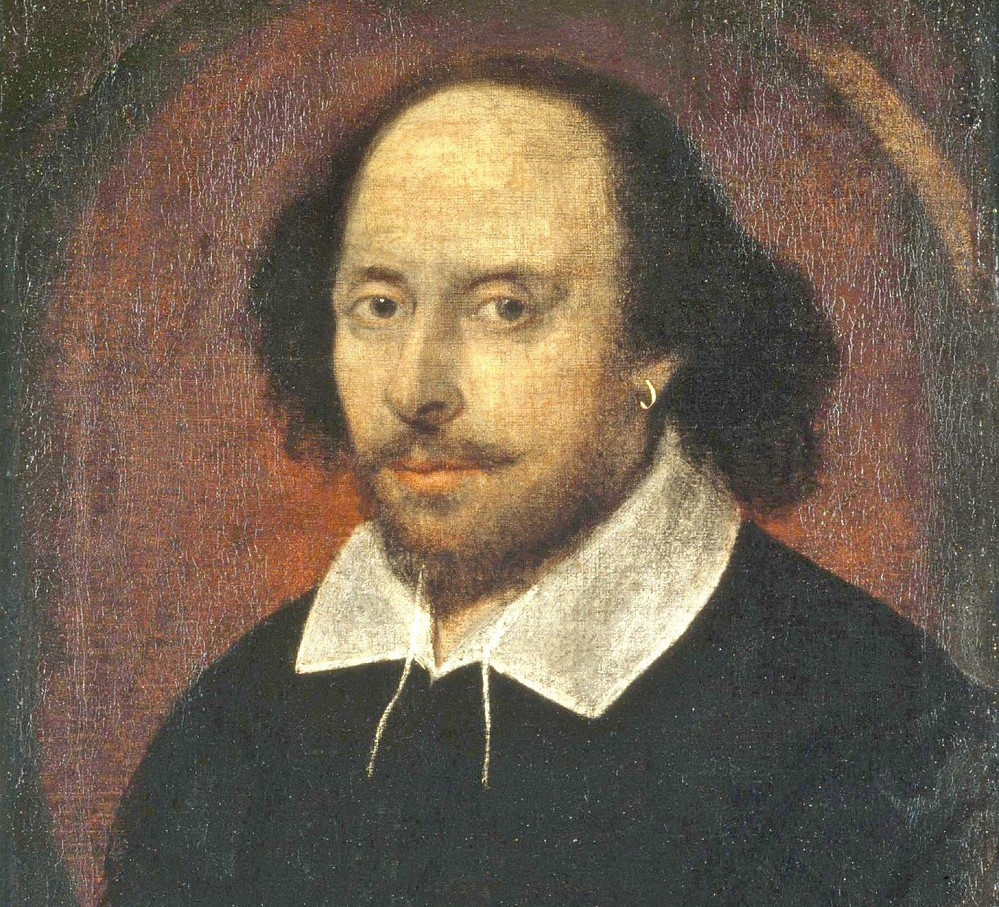
William Shakespeare: Biography, Plays and Quotes
William Shakespeare, known as the Bard of Avon, is a giant in English literature. He was a famous Elizabethan playwright, poet, and actor. His works have thrilled audiences and readers for over 400 years, making him one of the most influential writers ever.
This article looks into Shakespeare’s life, his literary achievements, and his lasting impact. Specifically, it covers his birthplace, his role in the English Renaissance, and his famous plays, sonnets, and quotes.
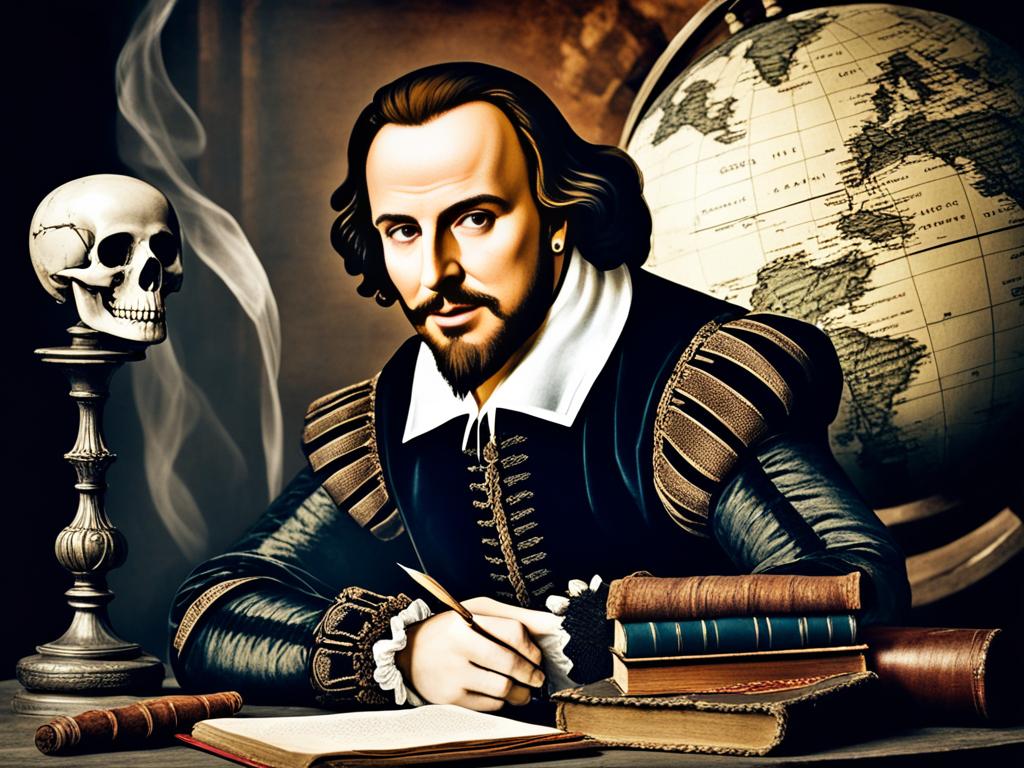
Shakespeare was born in Stratford-upon-Avon, a town with a rich history. His early life and experiences influenced the characters and themes in his work. During the Elizabethan era, the English Renaissance was in full swing.
Shakespeare’s talents shone at the Globe Theatre. His plays like “Hamlet,” “Romeo and Juliet,” and “Macbeth” were huge hits. They told stories that still touch our hearts and minds today.
Shakespeare also left his mark with his sonnets. Notably, these poems are loved for their beauty and deep thoughts on love, loss, and life. Furthermore, his famous sayings have become part of our culture, showing his skill with words.
The Life of William Shakespeare
William Shakespeare, a famous Elizabethan playwright, was born in Stratford-upon-Avon, in the English Midlands. This beautiful town was the place where he spent his early years. It was here that he developed into one of England’s most famous writers.
Stratford-upon-Avon: William Shakespeare’s Birthplace
Stratford-upon-Avon, a charming town by the River Avon, is where Shakespeare was born in 1564. His father was a successful glove maker. The town’s culture and community deeply influenced Shakespeare, inspiring his famous works.
The English Renaissance and Shakespeare’s Theatrical World
Shakespeare lived during the English Renaissance, a time of great creativity and progress. Moreover, he became a key figure in London’s theater scene. At the Globe Theatre, he worked as both a playwright and an actor.
He started in Stratford-upon-Avon but became a famous playwright in London. Shakespeare’s life and work exemplify the beauty of the English Renaissance. Furthermore, his plays still amaze people all over the world, proving his lasting impact.
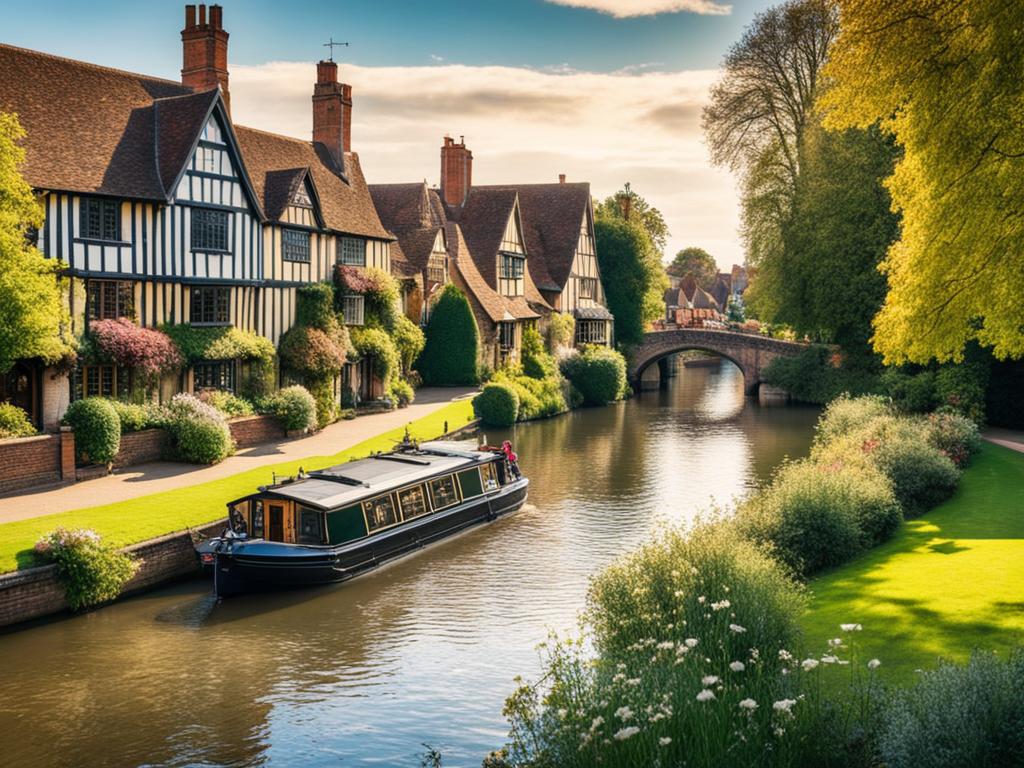
William Shakespeare Biography
William Shakespeare’s life story is a fascinating journey that has enthralled people for centuries. He was born in 1564 in Stratford-upon-Avon, England. His early life was simple, being the son of a glove maker. Yet, this humble start didn’t stop him from becoming a renowned playwright.
His education is a bit of a mystery, but he likely went to the local grammar school. There, he studied classics, rhetoric, and literature. Consequently, these subjects laid the groundwork for his later literary success, as seen in his famous plays and sonnets.
In 1582, at 18, Shakespeare married Anne Hathaway, who was eight years older than him. They had three children, including Susanna and twins Hamnet and Judith. This family life deeply influenced his writing, shaping the themes and characters in his works.
William Shakespeare Rise to Fame
Shakespeare’s rise to fame is not well-documented, but he likely moved to London in the late 1580s. There, he quickly became a respected playwright and actor. His early plays, like Henry VI and Richard III, received great praise, establishing him as a stage master.
Over the next two decades, Shakespeare wrote some of the most loved and influential works in English literature. These include Hamlet, Macbeth, Romeo and Juliet, and King Lear. His plays have been translated into many languages and are still performed and studied globally, proving his genius.
“All the world’s a stage, and all the men and women merely players.” – William Shakespeare
Despite his lasting impact, many details of Shakespeare’s personal life are still unknown. Scholars and writers have offered many theories about his life and times. Nevertheless, his works continue to captivate and inspire people, showing the enduring power of his creations.
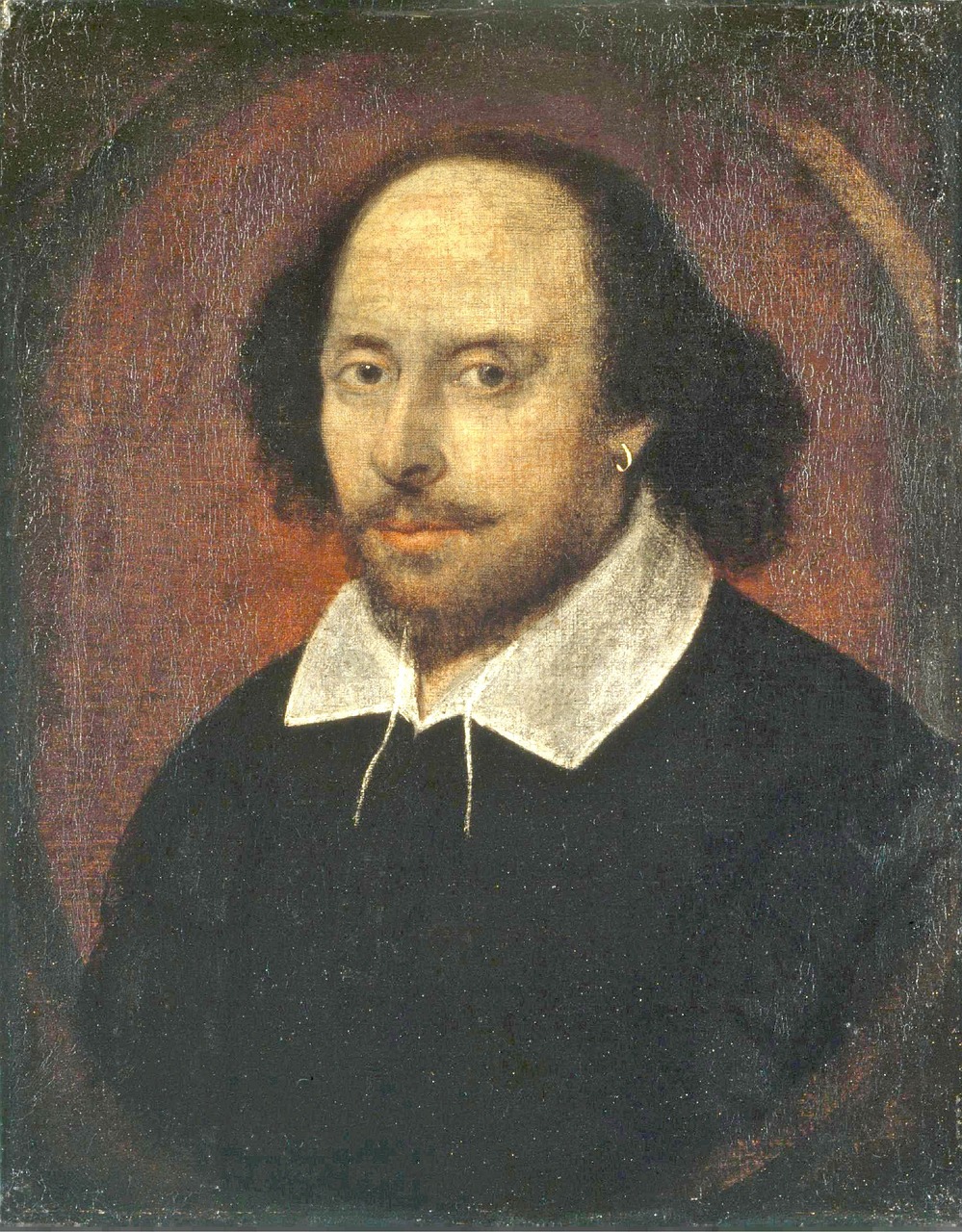
William Shakespeare Literary Genius
William Shakespeare’s talent is unmatched, creating some of the most loved plays in theater history. He mastered many genres, from fun shakespearean comedies to deep shakespearean tragedies and engaging shakespearean histories.
Shakespearean Plays: Comedies, Tragedies, and Histories
His comedies, like “A Midsummer Night’s Dream” and “The Taming of the Shrew,” have made people laugh for years. On the other hand, his shakespearean tragedies such as “Hamlet,” “Macbeth,” and “Romeo and Juliet” are classics. They deeply explore human feelings.
The shakespearean histories like “Henry V” and “Richard III” show his skill in telling historical stories. They mix drama, politics, and character studies for memorable shows.
The Bard’s Sonnets and Other Poetic Works
Shakespeare is also known for his poetry. His shakespearean sonnets, 154 in total, are considered some of the best poems in English. They talk about love, death, and being human with great skill.
“Shall I compare thee to a summer’s day?
Thou art more lovely and more temperate.”
– Sonnet 18, William Shakespeare
His other poems and dramatic pieces also show his skill with words. They keep audiences hooked with his powerful language.
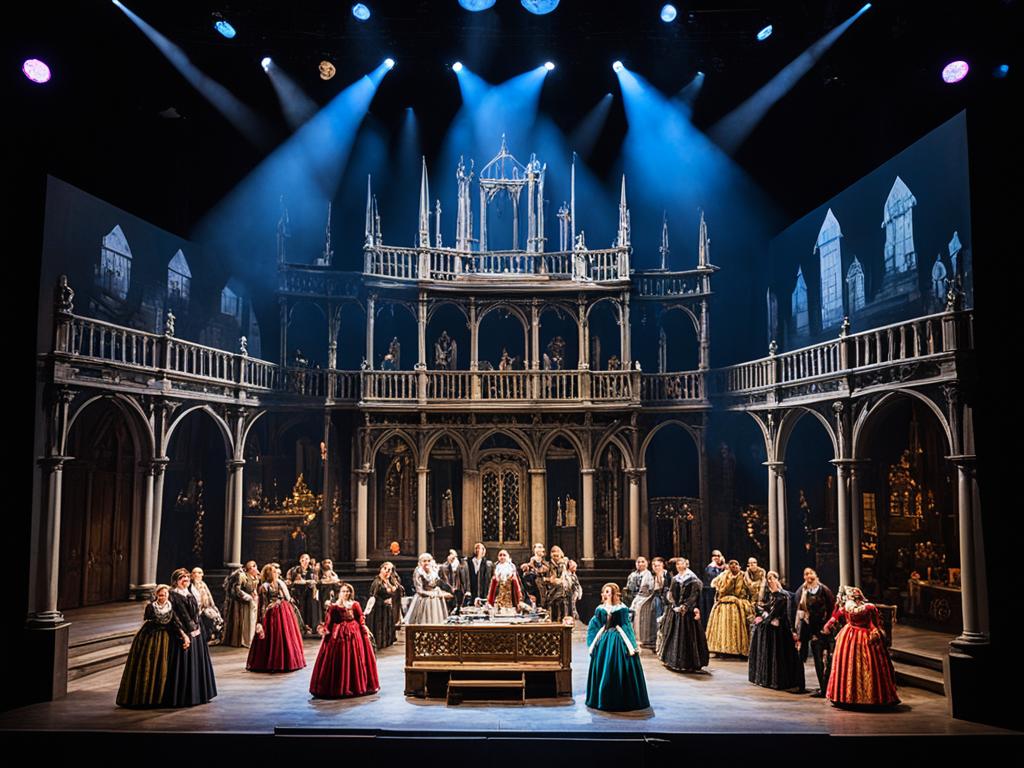
The Globe Theatre and William Shakespeare’s Legacy
The Globe Theatre was a famous playhouse in London where many of William Shakespeare’s famous works were shown. It was built in 1599 and showed the lively theater scene of the English Renaissance. It celebrated the talent of the “Bard of Avon.”
The Globe Theatre was by the River Thames, a place of new ideas in theater. Furthermore, its design and outdoor stage were perfect for Shakespeare’s plays. This setup allowed the audience to feel part of the drama and see great stories come alive.
“All the world’s a stage, and all the men and women merely players.” – William Shakespeare
The original Globe Theatre burned down in 1613. But, a new Globe was built on the same spot later. This new Globe keeps Shakespeare’s memory alive. Now, it draws people from all over who want to see his plays in their original setting.
William Shakespeare Legacy
Shakespeare’s work has made a big mark on literature, theater, and culture. Indeed, his plays, poems, and sonnets have been loved and used for years. Consequently, they have inspired many writers, actors, and fans.
- Shakespeare’s famous plays like Hamlet, Macbeth, and Romeo and Juliet are key to theater.
- His beautiful language has added many phrases to our everyday talk.
- Shakespeare’s characters, from heroes to clowns, have won over people everywhere. He is seen as one of the greatest literary geniuses ever.
The Bard of Avon‘s work still moves and excites us today. His plays are still acted, studied, and honored all over the world. The Globe Theatre reminds us of Shakespeare’s big impact on the arts and his huge role in literature.
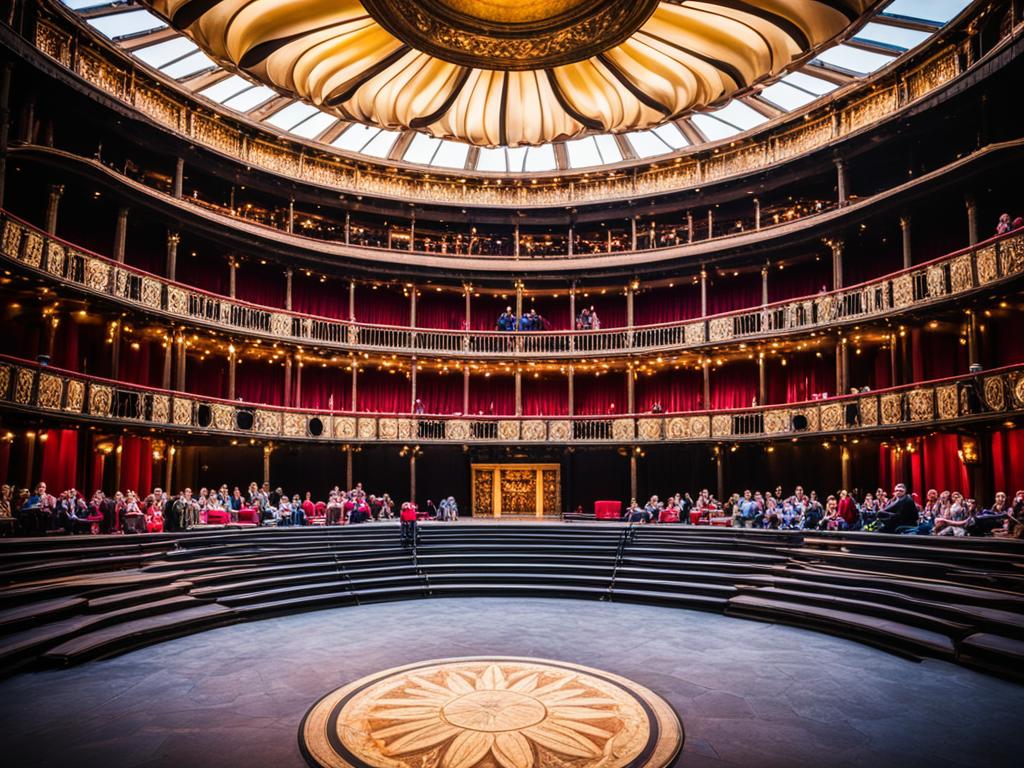
Exploring William Shakespeare Iconic Characters
In Shakespeare’s works, two heroes stand out: Hamlet and Macbeth. These characters have captured audiences for centuries. They are symbols of Shakespeare’s genius.
Hamlet: The Melancholy Prince
Hamlet is a key character in one of Shakespeare’s famous plays. He deals with his father’s death and his mother’s quick remarriage. His deep thoughts and slow decisions make him a complex Shakespearean tragic hero.
His famous soliloquies, like “To be, or not to be,” are well-known. They show his inner turmoil.
Macbeth: The Ambitious Tyrant
Macbeth shows the darker side of ambition. His desire for power, pushed by his wife, leads him to madness and tyranny. His story warns us of the dangers of ambition.
“Alas, that greatness should so much disturb the quiet of life.” – William Shakespeare, Macbeth
Shakespeare’s works are full of complex characters. From the doomed lovers in Romeo and Juliet to the troubled King Lear, these characters inspire and captivate us. They are symbols of what it means to be human.

Shakespearean Quotes and Phrases
William Shakespeare’s work has deeply influenced the English language. Moreover, his famous quotes and phrases are now part of our culture. The Bard of Avon’s wisdom and humor still move and inspire us today. Additionally, his skill in language and storytelling is unmatched.
Timeless Wisdom and Wit from the Bard of Avon
Shakespeare’s words range from deep and poetic to funny and playful. Phrases like “To be, or not to be” from Hamlet are now common in our speech. “All the world’s a stage” from As You Like It and “Romeo, Romeo! wherefore art thou Romeo?” from Romeo and Juliet are also well-known.
His deep thoughts on life, love, and existence still touch people of all ages. Shakespeare’s plays and poems show his amazing skill with words. They help us understand the human experience deeply.
His famous sayings, like “This above all: to thine own self be true,” and “Shall I compare thee to a summer’s day?” are key parts of our culture. They inspire and teach us, touching readers and scholars everywhere.
FAQ
Who was William Shakespeare?
Shakespeare was a famous English playwright, poet, and actor from the Elizabethan era. He is seen as one of the greatest literary minds in history. His works, like plays and sonnets, have lasted for centuries.
Where was Shakespeare born?
He was born in Stratford-upon-Avon, a town in the English Midlands, in 1564. This is where he grew up before moving to London for his theater career.
What were some of Shakespeare’s most famous plays?
His famous plays include tragedies like Hamlet and Macbeth, and comedies like A Midsummer Night’s Dream. These works are classics, touching on themes like love and power.
What is Shakespeare’s legacy?
Shakespeare’s impact on literature and theater is huge. His works have deeply influenced Western culture. He’s known for his deep understanding of human nature and his lasting effect on the arts.
Where was the Globe Theatre, and what was its significance?
The Globe Theatre was in London, where many of Shakespeare’s plays were shown. It was key to the growth of Elizabethan theater and Shakespeare’s success. The Globe is now linked with Shakespeare and the lively theater scene of the English Renaissance.


